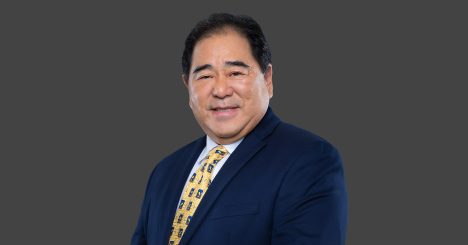Hawai‘i legislature is scheduled to adjourn on May 4, 2017. Four employment affecting bills have been submitted to conference committees. Conference committees are the final stage before the bills are submitted to the full Legislature for approval. The Legislature will need to pass all bills by April 27 and send them to Governor Ige for his approval by May 4. The surviving bills include paid sick leave, expansion of Hawai‘i family leave law to include siblings and reciprocal beneficiaries, clarification of the test used to determine if a contractor is an independent contractor or an employee for purposes of Hawai‘i unemployment insurance law, and a bill to incorporate portions of the federal Affordable Care Act into Hawai‘i’s Prepaid Health Care law.
Paid sick/family leave
House Bill (HB) 4 seeks to require all Hawai‘i employers to provide paid sick leave. The bill excludes Hawai‘i employers who already provide paid sick leave benefits that are greater than those proposed by the legislation. The bill will require employers to provide employees with one (1) hour of paid sick leave for every 40 hours of work, and allows employees to accrue up to 40 hours in a year. Exempt employees will earn 1 hour of paid sick leave for each week in which they work. Eligible employees must work more than 680 hours in a calendar year, and are entitled to use their accrued paid sick leave after working 750 hours for the employer.
The law would also allow all employees to use employer-provided paid sick leave for absences from work due to (1) the employee’s mental or physical illness, (2) to care for a family member with a mental or physical illness, or (3) for absences caused by closure of employer’s business because of a public health emergency.
The conference committee has been asked to reconcile minor revisions made to the House bill by the Senate. The differences relate to notice required to advise employees of their available leave and the inclusion of siblings as an employee’s family member. The conference committee is expected to pass a final version which will be submitted to both chambers for approval.
Expand Hawai‘i Family Leave
A bill seeking to expand Hawai‘i Family Leave Law to allow employees to care for siblings or to deal with the death of a family member is also assigned to a conference committee. The Senate included minor revisions in its version of HB 213, so conferees are expected to resolve the differences and present a final bill for approval.
Independent Contractors and Unemployment Insurance
HB 347 seeks to establish a straight forward test to be applied by Hawai‘i’s Department of Labor and Industrial Relations (DLIR) Unemployment Insurance Division to determine if independent contractors should be treated as employees eligible for unemployment insurance benefits. Currently there is confusion over the standard to be used because the DLIR has been applying the 20-factor test applied by the Internal Revenue Service, while Hawai‘i unemployment statute, HRS §383-6, specifically includes a three-part test referred to as the “ABC” test. However in its regulations the DLIR specifically references the IRS 20-factor test as guidance. The current bill seeks to change the statutory test to the IRS 20-factor test so employers, contractors and the DLIR understand the standard that must be met to ensure contractor status.
A conference committee has been asked to resolve differences between the House and Senate versions, which relate to the standard of proof employer’s will need to meet to satisfy the contractor test, and inclusion of definitions of a “client” and “independent contractor”. Neither appears to be contentious and passage is expected.
Health insurance
Because the immediate future of the federal Affordable Care Act is uncertain, Hawai‘i Legislature is proposing to include certain ACA benefits under Hawai‘i law. HB 552 seeks to preserve the ACA’s individual health insurance mandate; ten essential health care benefits, plus additional contraception and breastfeeding coverage benefits; extend dependent coverage for adult children to twenty-six years of age; prohibit imposition of preexisting condition exclusions; and prohibit use of an individual’s gender to determine premiums or contributions. Proposed versions by the House and Senate have significant differences, and the cost to implement the proposal is still unresolved, so an agreement on a final bill for a vote by April 27, appears unlikely.
Bottom Line for Employers
Hawai‘i employers are supporting the clarification for the independent contractor test, and the expansion of Hawai‘i’s family leave law, but are opposing the paid sick leave and inclusion of ACA provisions into Hawai‘i’s Prepaid Health Care law. Now is the time for all interested parties to contact representatives and especially the bill conferees to voice support or opposition to those bills. Information on the conferees and the dates for hearings can be found at http://www.capitol.hawaii.gov/.
Paul M. Saito is a partner in Cades Schutte’s Litigation Department. He is currently the editor of Hawai‘i Employment Law Letter, where this article first appeared. In that role, he is also a member of Employers Counsel Network.





